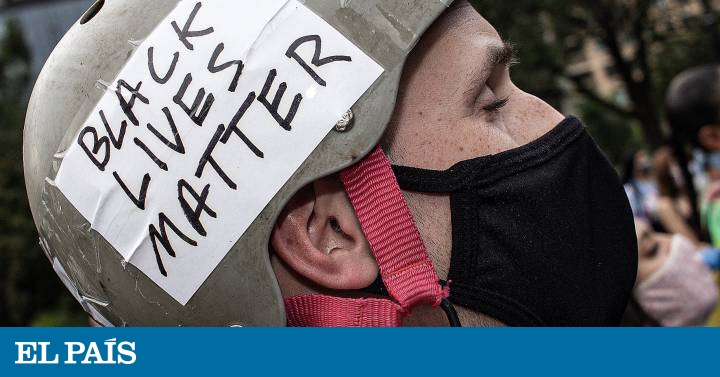Racism has once again become a throwing weapon among the candidates for the presidency of the United States.
The murder of George Floyd last May by the Minneapolis police showed the world that a part of American society continues to be racist with impunity.
Undoubtedly, the attitude of the president-elect and candidate for the Republican party, Donald Trump, fuels the embers of a problem that seemed to be overcome.
Trump unapologetically exhibits his populist and nationalist ideas, forgetting his moral responsibility as the leader of a country as influential as the United States.
Without scruples that could make him reconsider his strategy, Trump, who has described the protests of the
Black Live Matters
movement
of “domestic terrorism”, he bases his run for the White House on legitimizing the xenophobic behavior of his voters.
And that is playing with fire.
MORE INFORMATION
Johnson appropriates British cooperation
Five years later, Merkel's immigration legacy is yet to be written
Why the covid-19 crisis is also a governance crisis and how to get out of it
Unfortunately, the American electoral campaign style turns out to be a model for Europe.
The far-right parties, with similar narratives, have already reached various government positions.
If their polemics and hate speech manage to monopolize the electoral debate, the increase in racism is served.
In this situation, obviously, there is no single solution.
Political and social complicity, in addition to a constant work of integration - serving people with dignity - are strategies that would help prevent racism from being the center of debate again.
The stranger and the different ethnic group associated with poverty are aspects that can cause a feeling of insecurity, fear and, from there, lead to rejection.
This impression can only be overcome from a real social integration, which means facilitating the obtaining of decent jobs that facilitate adaptation and fusion with the environment through decent housing and normalized social relations.
Factors that, when achieved, make rejection lose its reason for being.
It is obvious that the consequences of the decisions that are made must be calibrated.
The politician cannot be naive and must assume that his resolutions may have collateral effects.
This is where generous quotas, hiring at source, and harmonization of criteria within the framework of the European Union make sense.
Despite this, taking into account the dignity of the people who have lived through a very hard migratory journey and to avoid a social image that encourages rejection, it makes no sense to keep these citizens in situations "in no man's land" when it comes to get their social and labor insertion.
Some examples of the current blockade are the impossibility of following regulated training, when it is no longer compulsory, or demanding chimeras, such as job offers of a minimum year duration, which do not exist today in our labor market, so that they can regularize their situation in the country.
In our understanding, the true cause of racism is inequality and situations of poverty, a context that some use as fuel to give wings and sustenance to radical positions of rejection
Informing citizens of the current legal framework that makes the insertion of migrants impossible would be a significant step towards neutralizing racist discourses.
And not only for the human dignity of those affected, but also to become aware of the causes of such marginalization.
Only from this change in mentality and vision, from social awareness, will it be possible to force the normative revision.
It will also be key to go further, and look at the other from the personal connection to be able to see them as someone with full rights, like any human being.
NGOs, as intermediary organizations between individuals and the State, with an integrating mission, have a great social responsibility in fostering this rapprochement between people, as well as in forcing a positive change in the legal framework.
The personal exchange, the dissemination of testimonies of success and necessity, or simply stating the absurdity and unfairness of some situations, would make us see that we all have the same fears and the same vital objectives.
Seeing the other as an equal would favor integration, as well as overcoming the discourse of radical rejection that gives meaning to certain political formations.
Sharing educational space or having companions from different family origins will bring us closer to the unknown and will favor overcoming prejudices.
On the other hand, it is also important to fight hate speech in a forceful way, and not from silence or indulgence.
When someone around us makes a racist comment it shouldn't be overlooked, let alone corroborated with a smile.
Our responsibility as citizens begins in the small gestures of the day to day.
In our understanding, the true cause of racism is inequality and situations of poverty, a context that some use as fuel to give wings and sustenance to radical positions of rejection.
Contributing to improving the conditions and eliminating the circumstances of inequality of the migrant will make the debate obsolete, which would mean overcoming certain radicalisms that take advantage of this reality for their own electoral benefit.
Josep Oriol Pujol Humet
is the CEO of the Pere Tarrés Foundation.

